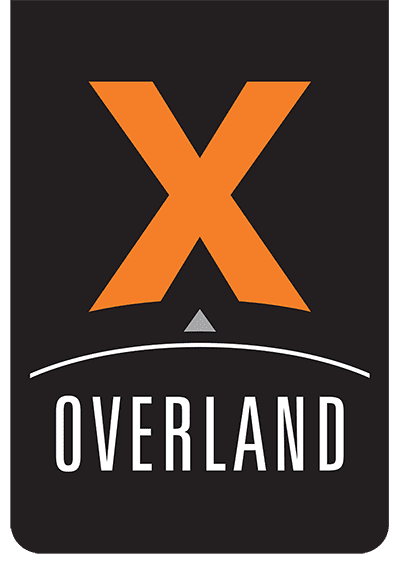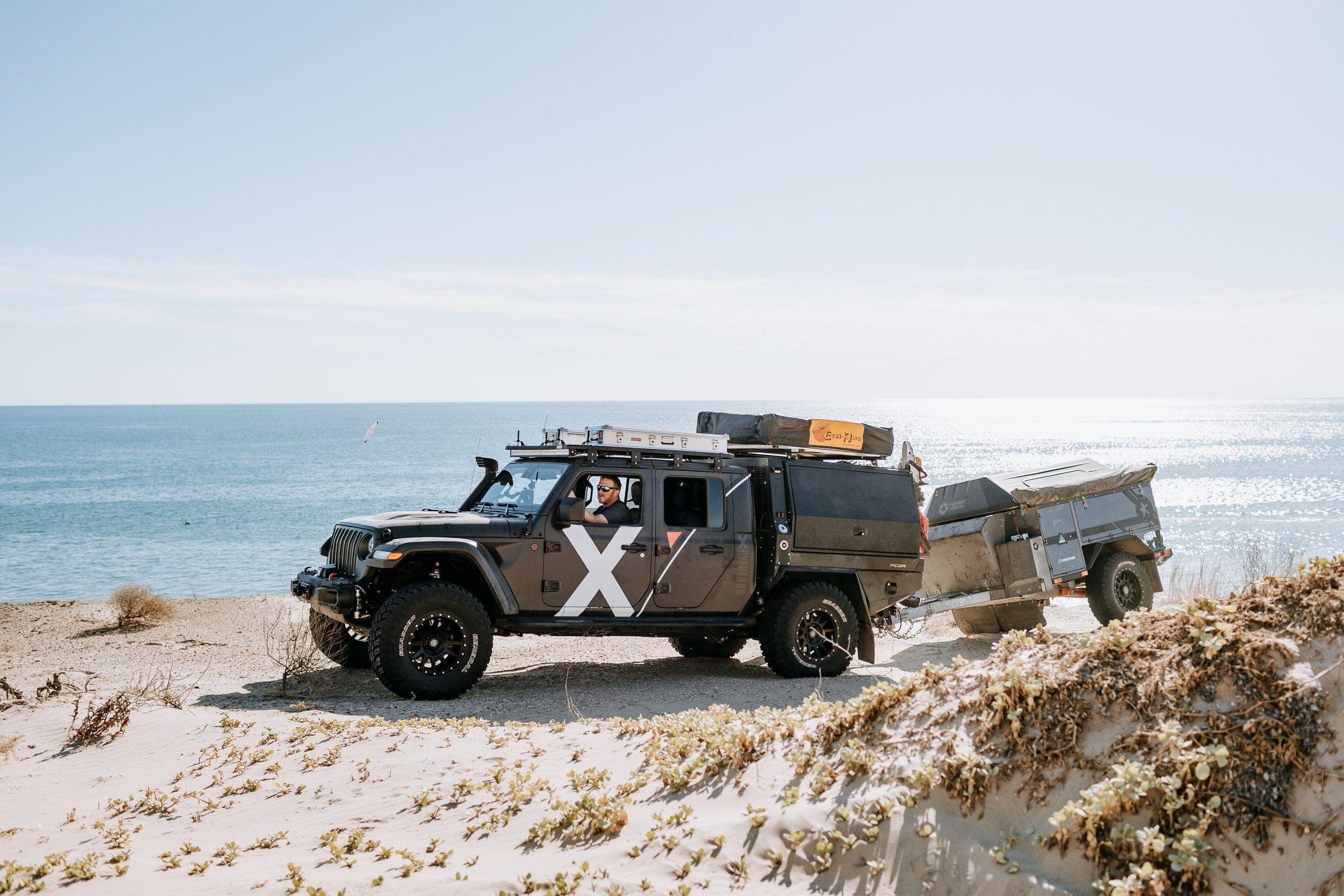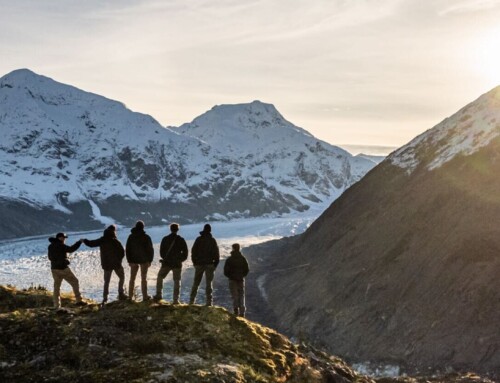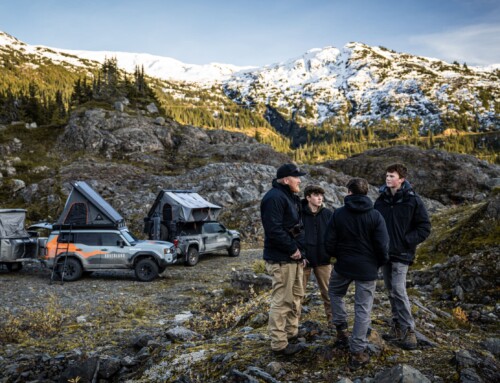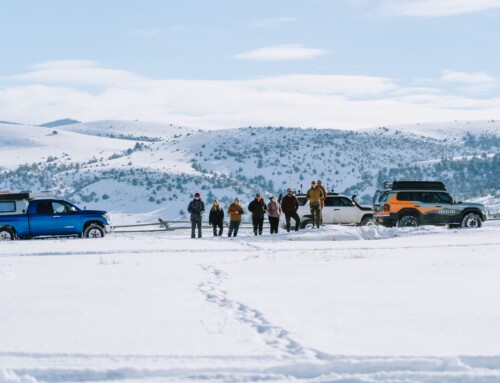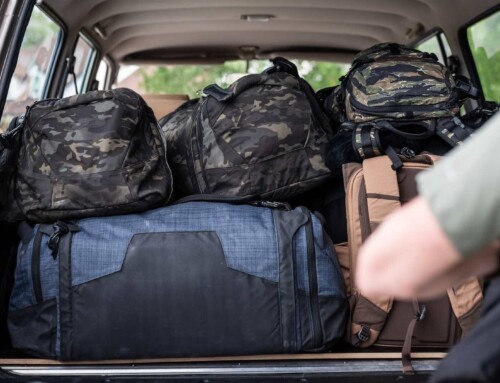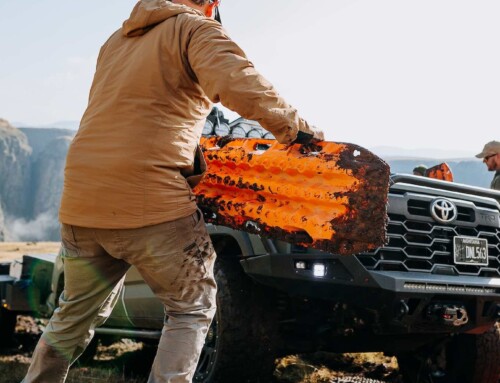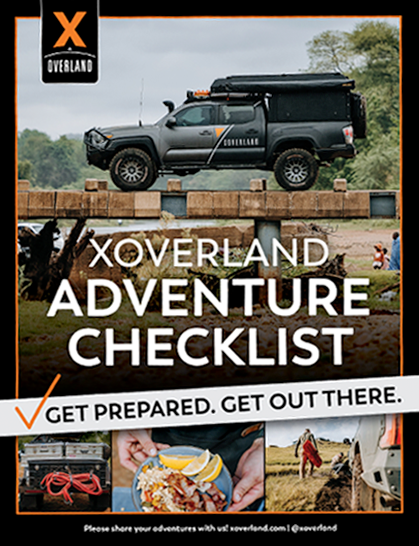Overlanding and off-road trailers are gaining popularity, and for good reason. A great trailer can offer excellent storage solutions and additional freedom. Like anything, towing a trailer has its pros and cons. Whether or not a trailer will work for you will depend on your setup, trip goals and priorities.
At Expedition Overland we choose to tow trailers for many reasons, but in particular because they provide the necessary cargo space for a fully loaded single vehicle. As we travel in a large group, we find there is more room in the tow vehicle for occupants and their belongings. This setup is also more efficient for a single platform – i.e. one vehicle and one trailer can hold two rooftop tents, providing sleeping arrangements for all occupants of the vehicle (rather than adding an extra vehicle).
To tow a trailer or not to tow a trailer? That is the question! Here are the pros and cons of each.
The Pros of Overlanding With Trailers
Freedom!
A camp setup built around a trailer allows the tow vehicle to leave at any time. Trailers are especially helpful to the weekend warrior, as drivers can stage the trailer at a campsite and head out to go fishing, hiking or to tackle an off-road trail with the added convenience of using the vehicle as a daily driver sans trailer during the week.
Staging a trailer also allows a group to split up, for example, if certain family members want to stay at camp while others desire a quick trip to town or a trail run. In the event you need to quickly depart the premises (say due to an injury or security issue) staging a trailer can also be a valid safety factor.
Weight distribution
As tow ratings are typically higher than payload ratings, many heavy items can live on a trailer including water tanks, rooftop tents, a galley system and large storage solutions. Transferring these items to a trailer also frees up the tow vehicle from requiring extensive modifications; suspension, tires and a bumper with a hitch would do the trick.
Organization and ease
The organization of a well-built trailer is second to none. In our experience, the Patriot Campers galley systems are much more efficient than any vehicle-based system. In fact, we haven’t come across a better trailer than the Patriot Camper out on the market.
As with any home, the galley or kitchen space can quickly become the hub of the campsite. The galley offers a much better cooking environment with a lot of flat surfaces and boasts spacious storage caverns for . We use these boxes for dry storage in all of our trucks.
In terms of ease, oftentimes trailers can handle larger rooftop tents (such as the Eezi-Awn 1600 or Globe Tracker Trailer Tent) than tow vehicles. Rooftop tents installed atop a trailer are also lower to the ground, making for a more accessible bed with easier set up and tear down.
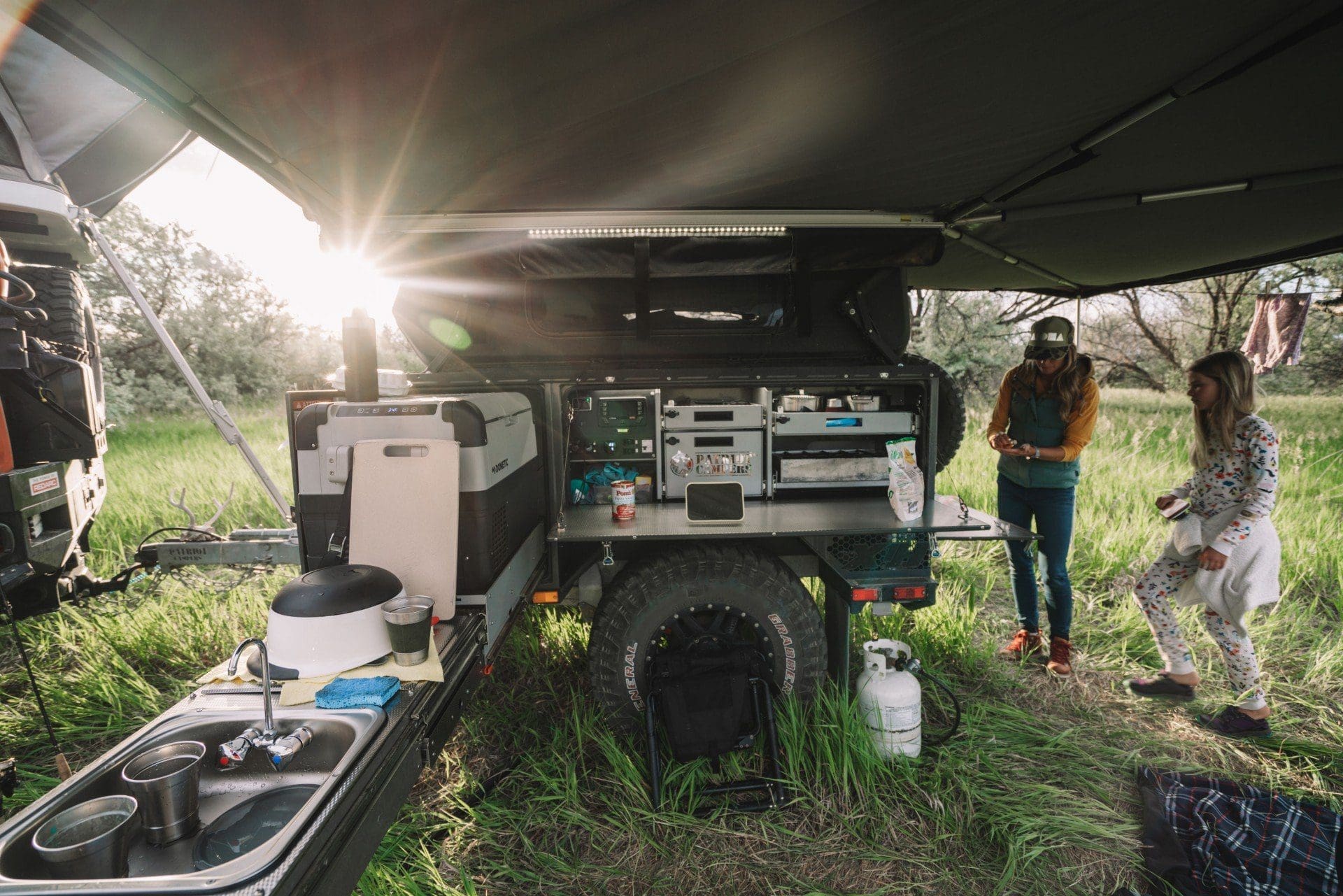
The Cons of Overlanding With Trailers
Defensive Driving and Maneuverability Take A Hit
Overland vehicles without trailers can make faster reactionary movements while driving thus having a defensive driving advantage. Trailers complicate a driver’s ability to make quick lane changes, rapid turn-arounds and sudden braking without damage to either the tow vehicle or trailer.
Road conditions are also a factor here. Narrow city streets in Central America and Peru can be difficult to navigate with a large rig and trailer. This is especially the case when trying to find a parking spot, trying to avoid unmarked one-way streets or attempting to turn around in tight areas.
Depending on the severity of the trail and the trailer you buy, the trailer might limit you in off-road conditions. Very deep snow, sand or mud is the biggest disadvantage to trailer weight as these conditions change the dynamic of how the vehicle performs.
Adding The Complexity of a Tow Vehicle
There is no doubt that adding a trailer adds complexity to your overland setup. Special parts and considerations need to be made and the addition of more mechanical parts increases the chances of failure.
The draw bar can also be a drawback. If not calculated properly, the draw bar can impede access into the back of your vehicle. For example, the Lexus GX has a side-opening door (as opposed to a tailgate) which, if your trailer isn’t jackknifed properly while parked, could be a problem.
Cost
Consider how overall length might add additional cost to ferries, toll roads and shipping options. Weight is also an important consideration. A heavy trailer setup can result in decreased range and fuel economy. To recover from this you might need a Long Range Automotive tank to enhance your range – but this modification also adds more weight to the tow vehicle, changing spring rates. Like the human body, all parts are connected and impact each other!
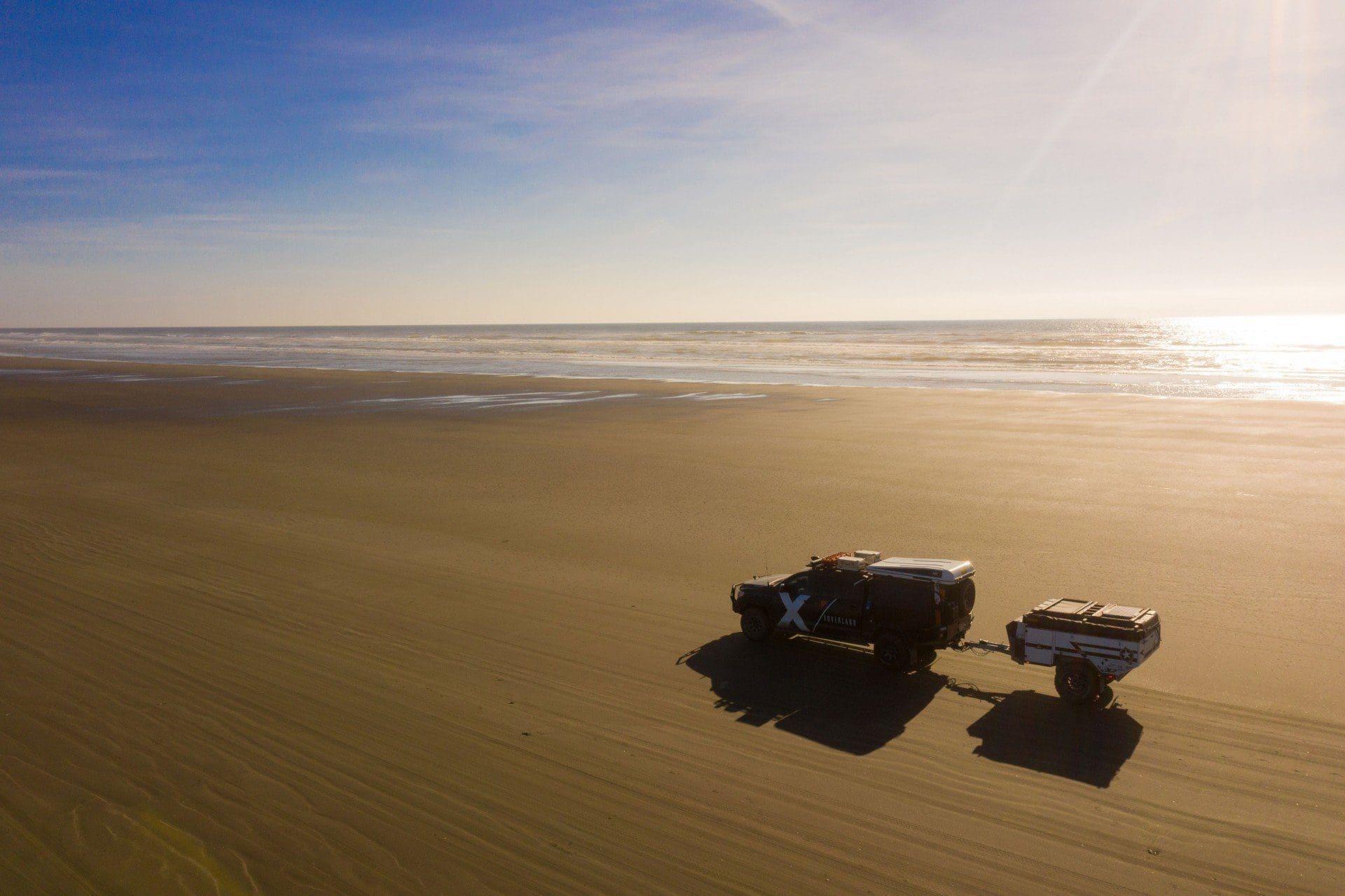
Is A Trailer Right For You? Here Are Some Tips and Tricks
- Try to match the trailer tire size to the tow vehicle. Hub pattern, wheels and tire size would ideally match.
- Off-road trailers can come with a heavy power draw, potentially adding more strain to the alternator and battery source. Make sure you have enough power to run the electronics in your trailer.
- Have a good brake controller. We love the REDARC Tow Pro as it has an on-road and off-road function, with an inertia sensing function for highway conditions and a user-controlled mode for off-road use.
- Consider the tow weight and handling of the tow vehicle. Upgrades such as springs, adjustable dampened shocks, or air bags may have to be made in order to safely manage the trailer, maintain ride heights and enhance shock performance on corrugated roads.
- Every offroad or overland trailer can integrate its own power management system, creating an entire ecosystem within the trailer. We use the REDARC Manager30 and new Red Vision systems in the Patriot Campers X1-H and TH610 with great success.
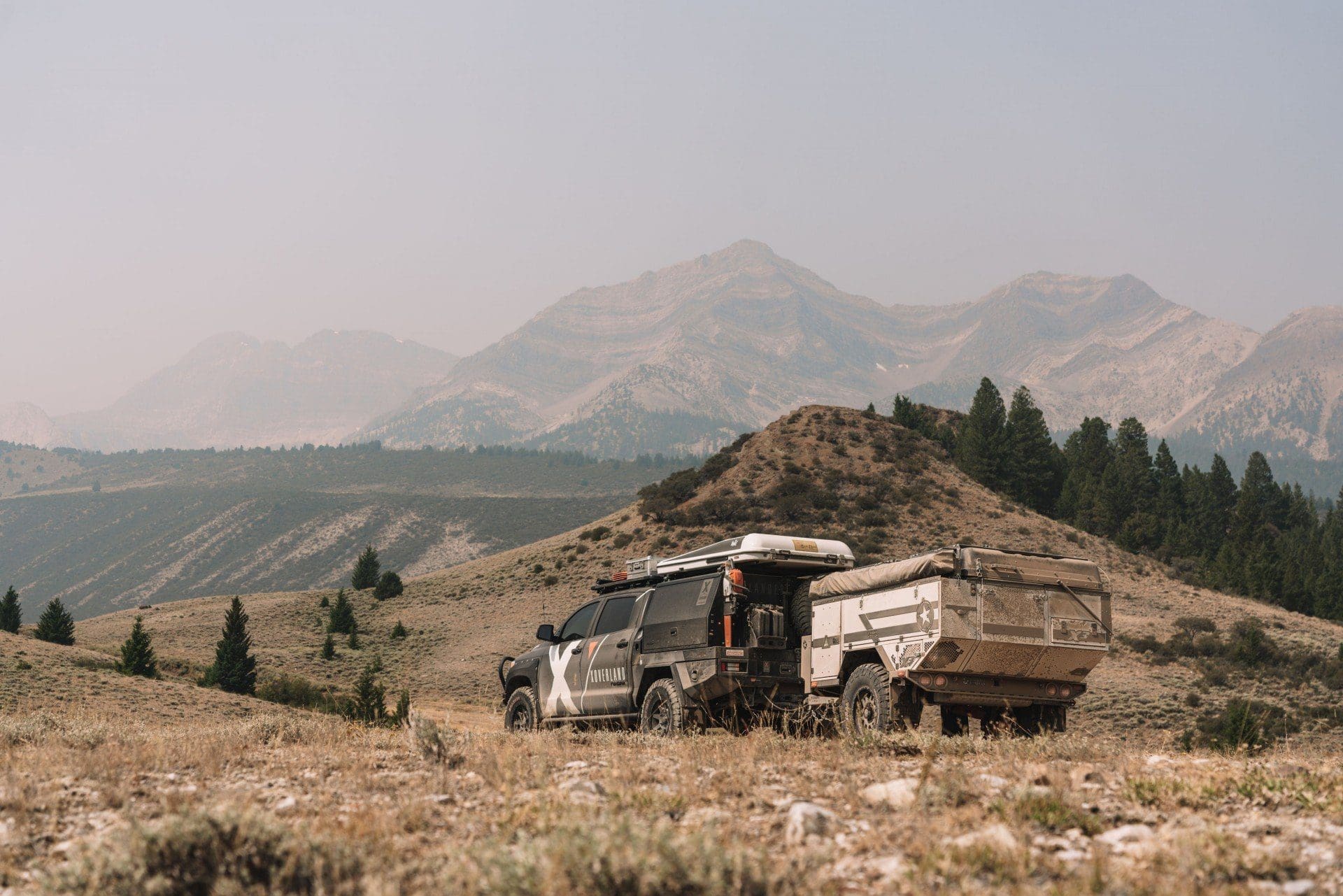
We hope this post has offered clarification on the pros and cons of overlanding with a trailer. Now we want to hear from you! Do you tow a trailer? If so, what do you enjoy about your setup? If not, what factors helped you decide against one? Let us know in the comments below.
